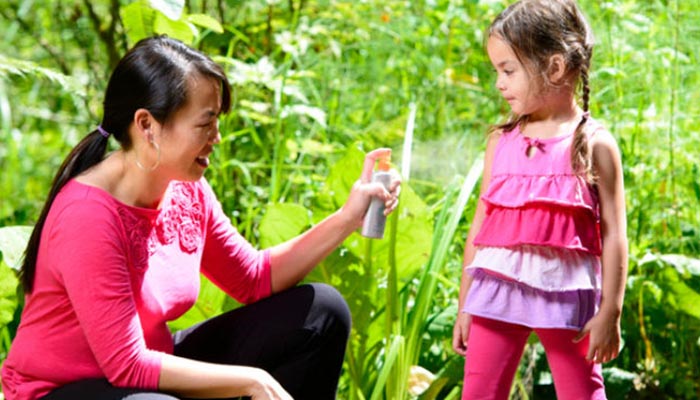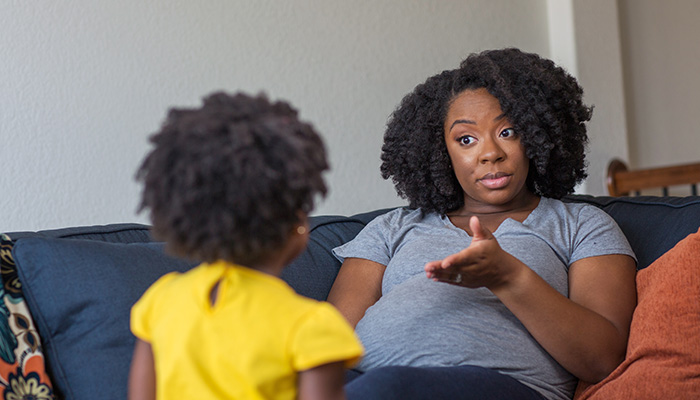We hope all of our families have been enjoying the sunshine and warm weather. Unfortunately with summertime come insect bites. This is a frequent topic that triage nurses discuss with parents during the summer months. Common insect bites are those of mosquitoes, chiggers, gnats, and spiders.
How do I prevent insect bites?
When able, we recommend wearing long pants, long-sleeved shirts, and a hat. Try to avoid being outside when the insects are most active. For example, chiggers and mosquitoes are most active at sunrise and sunset. The American Academy of Pediatrics (AAP) has approved the use of DEET in a concentration of 30% or less for all children over 2 months of age. We recommend looking for a product that is labeled “family”. The AAP recommends that parents do not reapply insect repellents with DEET. This is why combination sunscreen/insect repellent products are not recommended, as sunscreen should be reapplied every few hours while insect repellent should not. Remember to wash off the bug spray with soap and water after the child has returned indoors.
How should I treat itchy or painful insect bites?
To reduce itching, parents can apply 1% hydrocortisone cream three times a day until the itch is gone. This can be purchased over the counter at your local drug store. Baking soda paste or calamine lotion can also be applied to reduce the itch of bug bites. If the child is over two-years-old you can give a dose of Benadryl to try to help with the itching. If they are younger than that we recommend calling us first. We do not recommend topical Benadryl as some kids can have allergic reactions to the cream and there is limited evidence regarding how effective it is.
To help with pain from an insect bite an ice cube in a wet wash cloth can be applied for 20 minutes. Tylenol or ibuprofen can also be given.
How do I prevent bites from getting infected?
Clean the bite with soap and water and continue to keep it clean while it heals. Apply a band aid if desired to help prevent scratching. A topical antibiotic ointment such as Neosporin or Bacitracin can also be applied to the area three times per day. We would recommend taking a pen and making a small mark where any redness is located. This will help determine if the redness or swelling is spreading. You can also take photos of the bite to document what it looks like. If your child needs to come in for an appointment these photos might be helpful for the clinician to review.
How long should I expect the insect bite to last, and when should I notice improvement?
Most insect bites are itchy for several days. The swelling from a bite may last 7 days. Pinkness or redness from insect bites usually last 3 days. Insect bites of the upper face can cause severe swelling around the eye. The swelling is usually worse in the morning after lying down all night and it will improve after being upright for a few hours.
When should I call the clinic?
Call us if the insect bite looks infected. Signs of infection you may notice are spreading redness starting after 24 hours of the bite, red streaks on the skin, pus or drainage from the bite, increasing pain, or fever. Please call us if there are any other questions or concerns.



